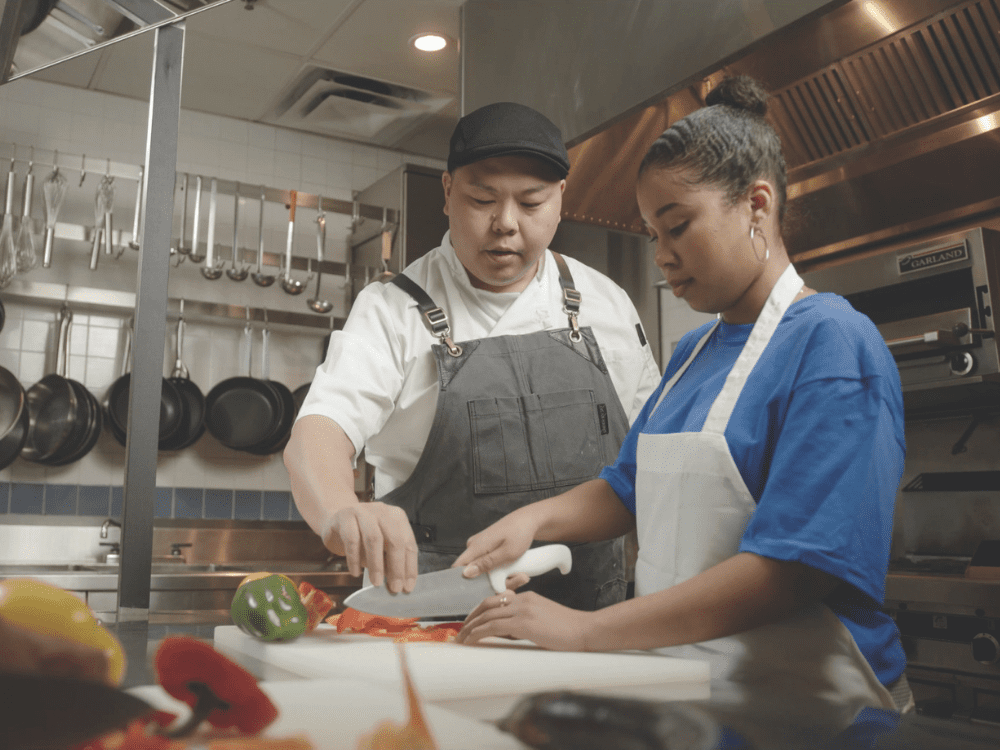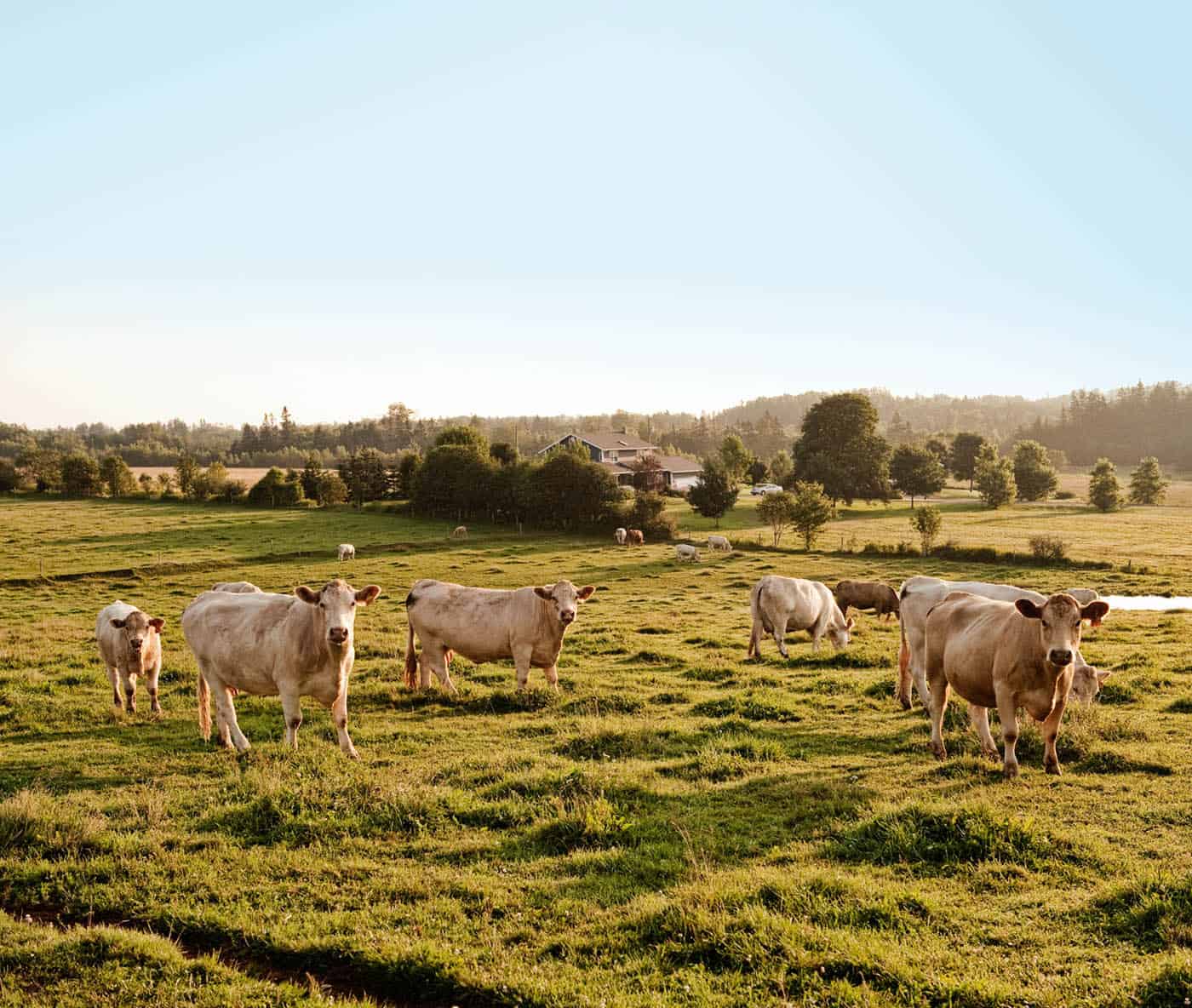
Cooking was something Zyleigah Archibald always enjoyed, but pursuing it as a profession felt way out of her reach.
For Archibald, a group-home resident, enrolling in culinary school was unattainable. But her case worker noticed the 18-year-old’s interest and talent and put her in touch with Covenant House’s Cooking For Life program.
“I went from being a home cook to being taught by a chef,” says Archibald. “I was very nervous, but Chef Danny [Moon] knows how to make people feel comfortable. The program teaches you everything you need to know [about working in] an industry kitchen. It’s fast-paced but well thought out even for someone like me who struggles with ADHD and memory problems. I was able to pick up everything quickly.”
Covenant House, whose annual operating budget is almost 80 per cent donor-supported, is Canada’s largest agency advocating for young people aged 16 to 24 who are homeless, trafficked or at risk. Its 100,000-square-foot drop-in shelter in Toronto has been serving vulnerable youth since 1982, providing meals and a place to stay the night, as well as counselling, health support and assistance in finding housing options and stable employment.
For youth who have had traumatic experiences, the internationally recognized agency’s education, life skills and employment programs help build self-confidence and independence. Since 2011, Cooking For Life’s pre-employment training has equipped youth with the skills and support needed for entry-level jobs in food service.
The program has teamed up with restaurants in Toronto—such as Añejo, Ascari, BOSK at the Shangri-La and Naan & Kabob—to offer work placements. About 70 per cent of its participating youth have found jobs.
Under chef-instructor Moon, Cooking For Life has been extended to 15 intense weeks. Students spend the first seven weeks in the restaurant-training kitchen facility at Covenant House to gain hands-on experience and develop time-management, teamwork and cooking skills.
In addition to reduced class sizes, from 15 to 10, during the pandemic, the program forged ahead by splitting groups into two and switching midday between workshops and kitchen time to allow for social distancing and providing work placements within Covenant House’s in-house kitchen.
Having run similar programs in the York Region with tighter budgets, Moon was encouraged by the creative freedom he is allowed in his classes. “What I try to do is a mix of appreciating good fundamentals while slowly exposing [students] to things they might already know but [had] seen in a different way, as well as new things they’ve never tried before,” says Moon.
“[I encourage them to] learn to appreciate food [and] where it comes from, learn to be resourceful and how to budget. [And] outside of food, it’s [about] getting to know them and who they are and to teach them to build self-confidence in a safe environment and to see more opportunities to grow.”
Cooking For Life instilled discipline and confidence in Archibald, who finished her training earlier this year. When a placement with east-end Toronto restaurant Mira Mira came up, she applied. Covenant House assisted her with her resume and provided clothing for the interview. She was hired by the restaurant after her internship.
For Archibald, the dream of becoming a sous chef at a fine dining restaurant within five years is now within reach.
“Go there and be teachable,” Archibald advises other Cooking For Life candidates. “I came from living in a group home and [being] in a bad situation. You can get through anything you put your mind to. Whatever your goal is, as long as you’re ready to reach your hand out, you can grab it.” —RENÉE S. SUEN



